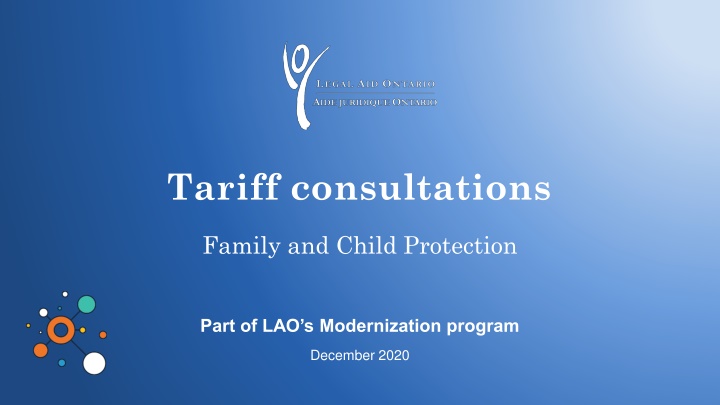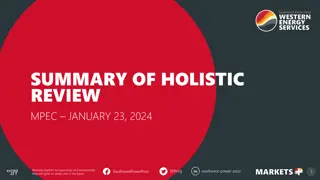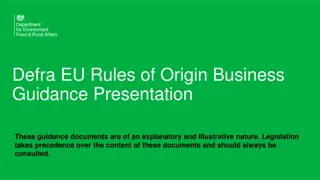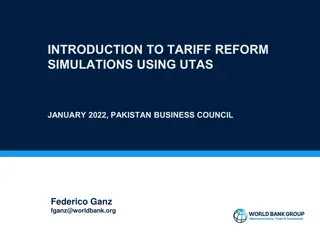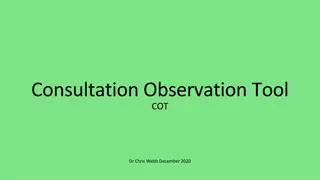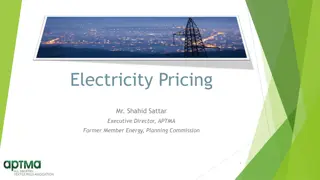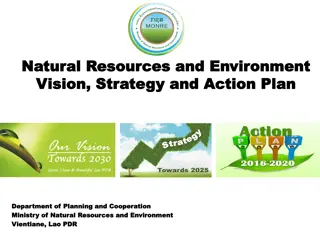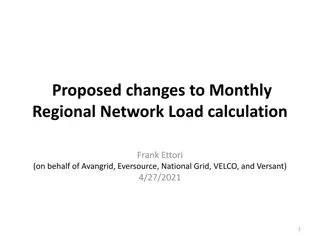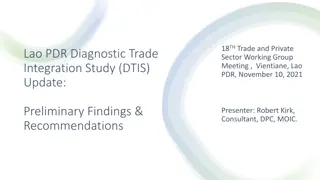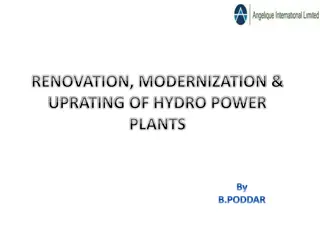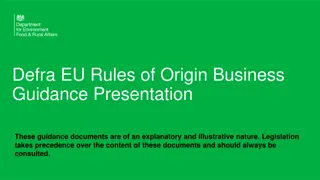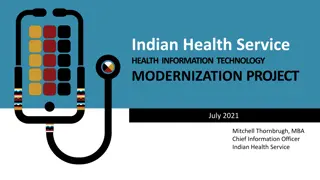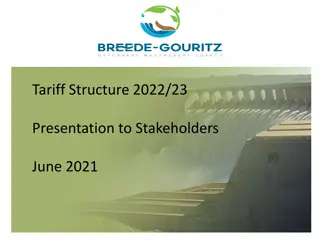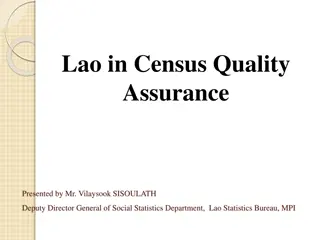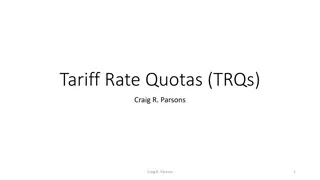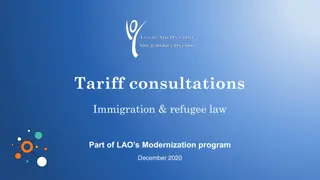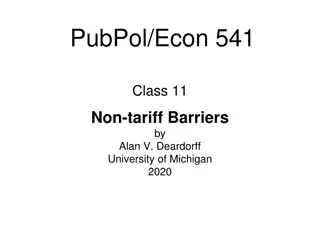Overview of LAO's Tariff Consultations for Family and Child Protection Modernization Program
LAO is seeking input on tariff reform as part of its modernization program to enhance Ontario's legal aid system. The focus is on immediate, cost-neutral updates and future potential increases. Feedback will help simplify billing rules, improve online services, and streamline access to information, aiming to support lawyers and clients effectively. Consultation process includes small group discussions, surveys, and written submissions.
Download Presentation

Please find below an Image/Link to download the presentation.
The content on the website is provided AS IS for your information and personal use only. It may not be sold, licensed, or shared on other websites without obtaining consent from the author.If you encounter any issues during the download, it is possible that the publisher has removed the file from their server.
You are allowed to download the files provided on this website for personal or commercial use, subject to the condition that they are used lawfully. All files are the property of their respective owners.
The content on the website is provided AS IS for your information and personal use only. It may not be sold, licensed, or shared on other websites without obtaining consent from the author.
E N D
Presentation Transcript
Tariff consultations Family and Child Protection Part of LAO s Modernization program December 2020
Agenda 1.Welcome and introduction 2.Background and purpose 3.Discussion 4.Next steps 2 2
Welcome and introductions 1. Welcome and opening remarks David McKillop, VP Strategy & Public Affairs 2. Remarks Darcy DesLauriers, Director, Lawyer Services & Payments 3. Introductions LAO Participants 3 3
Background Updating the way we pay lawyers is an important part of LAO s Modernization program that aims to modernize Ontario s legal aid system, allowing LAO to be more responsive to community needs, and putting our clients at the centre of everything we do. To this end, we are seeking your input on tariff reform, redesigning Legal Aid Online and improving access to information necessary to bill successfully. 4 4
Context Updating the way LAO pays lawyers is an important part of LAO s modernization program, which aims to modernize Ontario s legal aid system and allow LAO to be more responsive to lawyer, client and community needs, while continuing to be a responsible steward of public funds. We don t currently have funding to make increases to the tariff, so the focus of these consultations are on immediate, cost-neutral updates. We do, however, want to hear from you about where future increases might be applied, if and when possible. We will use your input to determine how best simplify our current billing rules, improve Legal Aid Online to reduce the time and effort required to submit accounts, and provide easier online access to information. Our goal is to receive as much feedback and as many perspectives as possible so we can move forward and make important decisions about how to modify the way we pay you, revamp Legal Aid Online and facilitate easier online access to information you need to do legal aid work. 5 5
Principles Flexibility to adjust to changing needs Cost effectiveness to promote sustainability Efficiency to ensure the best use of resources Accountability Fairness to ensure payment is reflective of the work done Incentive for good client service and for lawyers to accept LAO clients 6 6
Consultation process three parts 1. Small group discussions based on area of law open to all panel members 2. Survey sent to all panel members 3. Written submissions 7 7
What we have heard from you Legal Aid Online is outdated and difficult to navigate. Discretion payments are unpredictable and infrequently approved. The tariff is inadequate, particularly to deliver high quality legal services. The administrative effort for billing is too onerous. Only 24 percent of respondents to the 2019 Lawyer Satisfaction Survey viewed LAO billing and payment practices positively, the lowest percentage compared to other areas of LAO activity surveyed. 8 8
Process 1. The first set of questions are of a general nature and your views on these issues will help focus our work going forward. 2. The questions that follow are based on feedback that has been provided in the past and we want to get your views on these issues and potential solutions. 3. We hope that our conversation these issues will generate further discussion on other issues and possible solutions. 9 9
Improving Legal Aid Online and the Tariff 1. What aspect of billing takes up the most amount of time? 2. What is the biggest impediment to finding information regarding billing or billing rules? 3. How can LAO simplify billing for you? 4. What additional features would you like to see in an online portal? 5. What are your top three billing grievances unrelated to the tariff? 6. Where do you feel that the tariff is most inadequate? 7. How would you improve discretion? 10 10
Start and end times for hearings 8. LAO s current hourly tariff rules require panel members to record both start and end times in their detailed dockets for those hearings which add tariff for the attendance. Would you support a counsel fee for these attendances which are based on either a set number hours or a block fee? This would eliminate the requirement that counsel keep track of start and end times for court appearances and LAO would only need to confirm that the particular attendance took place. 11 11
Adjusting tariff inadequacies 1. Case conferences are currently paid by allowing two hours of preparation time and actual time spent in court when addressing the matter. Would it be simpler to have a single tariff allotment that covers a set amount of hours for both court time and attendance time? 2. We have heard that LAO should better support early resolution. How would you propose that LAO do that? 3. We have heard that our domestic family tariff doesn t match the practice of law, and that we should allocate hours differently. How would you propose that LAO allocate hours, bearing in mind that any changes must be cost-neutral? 4. In child protection, LAO changed the tariff on the advice of the bar. How are those changes working? Are they working as intended? 12 12
Other matters What other matters would you like to raise, that have not been discussed today? 13 13
Next steps and estimated timelines 1. Review and aggregate the consultation feedback, cost analysis and development of survey questions (March 2021) 2. Send out follow-up survey and written submissions (April 2021) 3. Survey analysis and summary of survey/submission findings and highlights (April/May 2021) 4. Communication to the bar and implementation of changes (TBD) 14 14
Questions? TariffConsult20 TariffConsult20- -21@lao.on.ca 21@lao.on.ca
